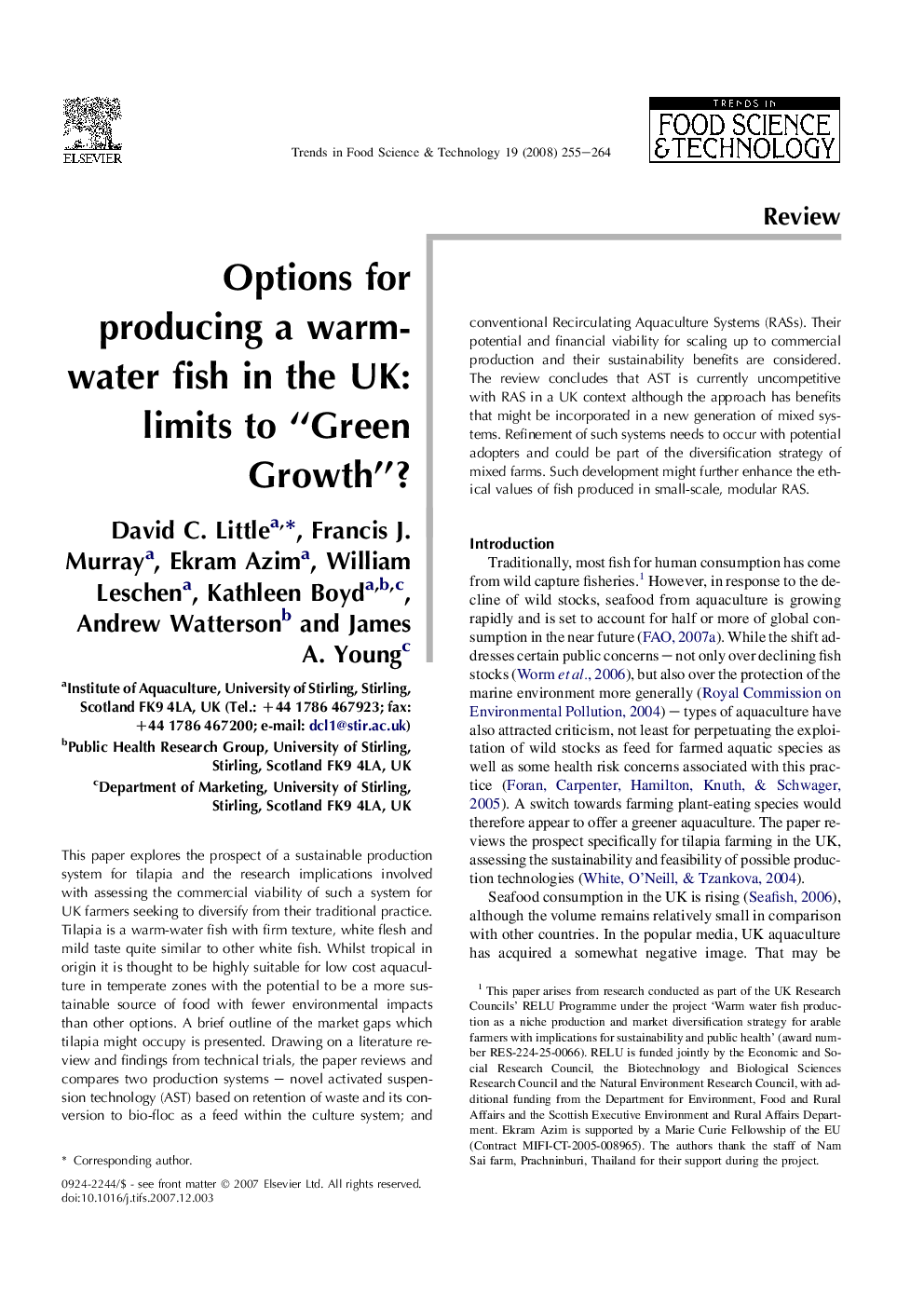| کد مقاله | کد نشریه | سال انتشار | مقاله انگلیسی | نسخه تمام متن |
|---|---|---|---|---|
| 2099499 | 1082696 | 2008 | 10 صفحه PDF | دانلود رایگان |

This paper explores the prospect of a sustainable production system for tilapia and the research implications involved with assessing the commercial viability of such a system for UK farmers seeking to diversify from their traditional practice. Tilapia is a warm-water fish with firm texture, white flesh and mild taste quite similar to other white fish. Whilst tropical in origin it is thought to be highly suitable for low cost aquaculture in temperate zones with the potential to be a more sustainable source of food with fewer environmental impacts than other options. A brief outline of the market gaps which tilapia might occupy is presented. Drawing on a literature review and findings from technical trials, the paper reviews and compares two production systems – novel activated suspension technology (AST) based on retention of waste and its conversion to bio-floc as a feed within the culture system; and conventional Recirculating Aquaculture Systems (RASs). Their potential and financial viability for scaling up to commercial production and their sustainability benefits are considered. The review concludes that AST is currently uncompetitive with RAS in a UK context although the approach has benefits that might be incorporated in a new generation of mixed systems. Refinement of such systems needs to occur with potential adopters and could be part of the diversification strategy of mixed farms. Such development might further enhance the ethical values of fish produced in small-scale, modular RAS.
Journal: Trends in Food Science & Technology - Volume 19, Issue 5, May 2008, Pages 255–264